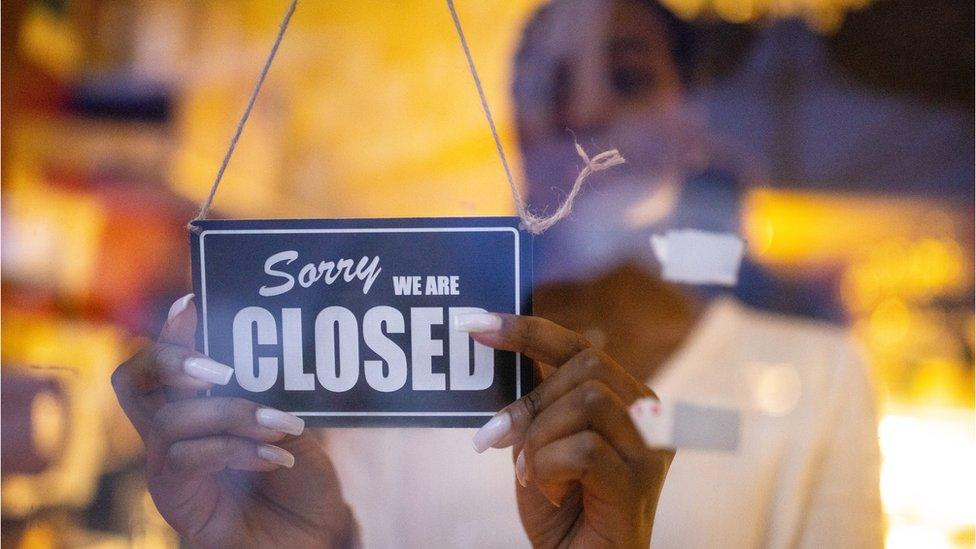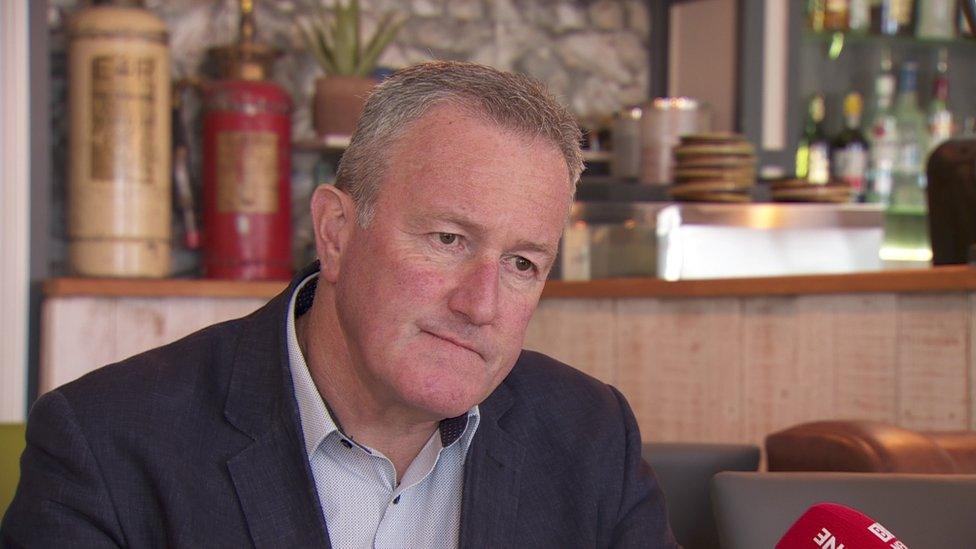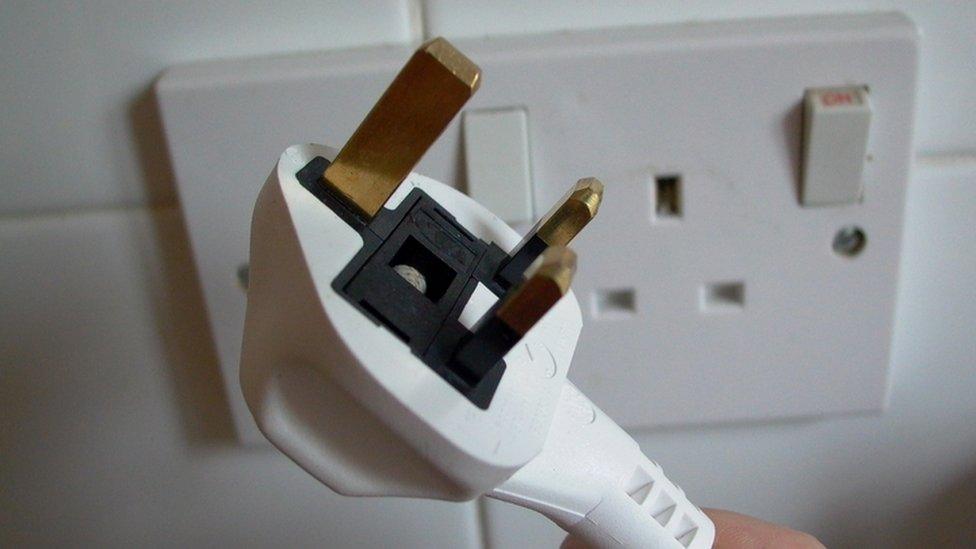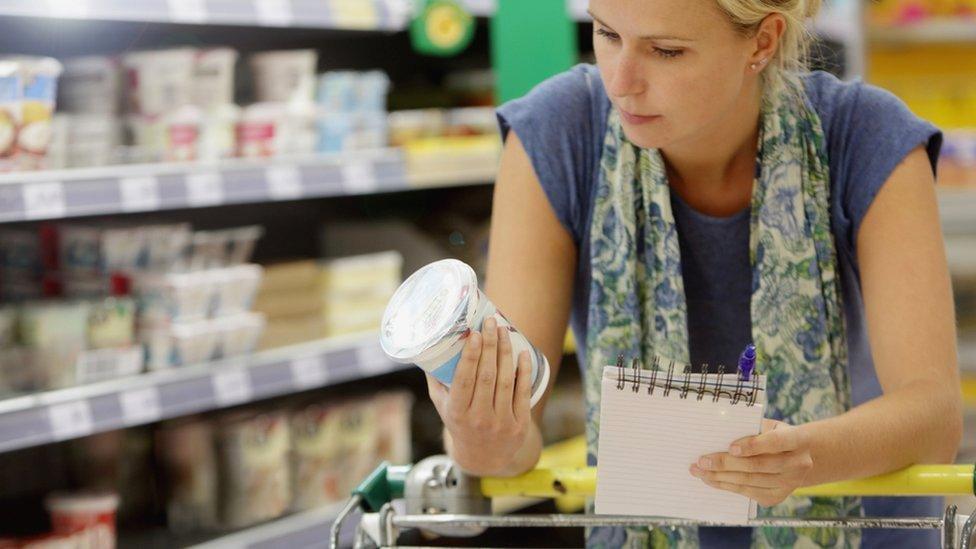Cost of living: Hospitality sector at risk as costs soar
- Published
- comments

Rising costs are putting jobs and businesses in the hospitality sector at risk, a business group has said.
One industry group warned two to three businesses are closing down every week.
Hospitality was among the sectors hardest hit by the pandemic and now the industry has gone from one crisis to the next.
Rising food and energy costs are creating a cost of living crisis for households and a "cost of doing business" crisis for business owners.
James Higginson, who owns Captain Jack's restaurant and takeaway in Portaferry, has worked in the industry for 24 years and said he had never seen so many price increases.
Every day they are seeing more price increase in terms of the food they buy in.
"It has just been a snowball effect across the board. You're just constantly battling it to say when is it going to stop?" Mr Higginson said.
'You can't write menus to suit price increases'
In April, the national living wage increased and the lower rate of VAT came to an end.
For example, the cost of a fillet of fish has increased from £2 to £3.50, Captain Jack's cooking oil bill rose from £400 a month to £1,400 a month and the price of butter has increased from about £60 a case to more than £70 a case.
Energy is the biggest overall increase - their electricity bill has trebled and gas has risen significantly.
Their running costs have increased by £10,000 since January and in order to cover that increase they would need to make £50,000 in additional sales.
"You can't keep changing menus to suit these prices, you can't pass it all on to the customer either, you have to try and absorb as much as you can, when you can, and still try and make a profit," Mr Higginson added.
'Very little to live on'
Moes Grill in Magherafelt closed its doors earlier this week after 11 years in business.
Manager Robin Clarke said it was the second restaurant it had to close this year due to rising costs.
"Gas, electricity, the costs have went up nearly 70%, food costs have risen on average 20%, cooking oil has doubled," he told BBC's Good Morning Ulster programme.
"It eats into your profit, you're left on very little to live on after this."
Mr Clarke added that increasing staff wages and difficulties recruiting chefs were adding to the restaurant's problems.
While those who worked at the chain in Magherafelt have been redeployed, Mr Clarke said that telling staff about closing was "one of the hardest things" to do.
Finance Minister Conor Murphy said the Treasury must act now to support businesses facing soaring energy prices and crippling costs.
"Just like households, our businesses are facing a cost crisis," Mr Murphy said.
"The measures taken by the British government to date have failed to deliver support for businesses, which are under immense pressure as a result of increased fuel and energy costs."

Finance Minister Conor Murphy has said the Treasury must act now
"Treasury cannot wait until the autumn to take action, the reality is that this may be too late for some businesses."
During the pandemic, many businesses took on bounce back loans or debt, but now that has to be paid back against a backdrop of rising costs.
Hospitality Ulster chief executive Colin Neill said this crisis is worse than Covid as during the pandemic there were huge amounts of government intervention.
"We already have seen closures. We are seeing about two or three places closing every week," he said.
"It's the scale of rising costs and at the same time, our consumer spending power wiped out. It's an attack from all sides and the problem is the normal 'lifeboat' or any reserves tucked away in the back pocket is gone, Covid took it."
Related topics
- Published16 July 2022

- Published1 July 2022

- Published20 July 2022
